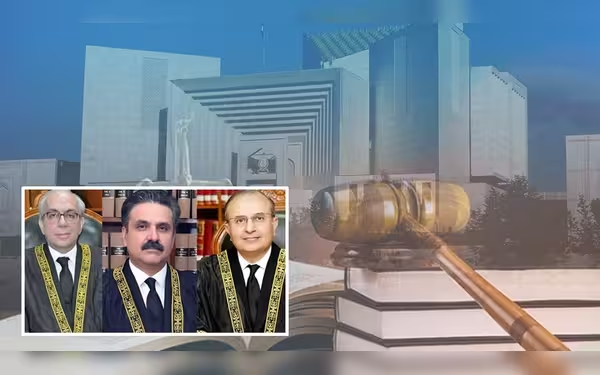Thursday, November 7, 2024 01:46 PM
Supreme Court Calls Full Hearing on 26th Amendment
- Supreme Court judges urge full court hearing.
- Hearing scheduled for November 4.
- 26th Amendment impacts governance and citizen rights.
 Image Credits: en.dailypakistan.com.pk
Image Credits: en.dailypakistan.com.pkSupreme Court judges urge CJP Afridi to convene a full court hearing on the 26th Amendment, scheduled for November 4, addressing crucial legal implications.
The recent developments surrounding the 26th Amendment have captured the attention of legal experts and citizens alike. The Supreme Court of Pakistan, the highest judicial authority in the country, is currently facing a significant matter that requires urgent attention. The 26th Amendment pertains to important legal frameworks that affect the governance and rights of citizens. As such, it is crucial for the court to address this issue comprehensively.
In a joint letter, senior judges of the Supreme Court have urged Chief Justice of Pakistan (CJP) Afridi to convene a full court hearing regarding the 26th Amendment. This call for action comes after attempts to organize a committee meeting on October 31 to discuss the matter were met with silence. The lack of response prompted two justices to take matters into their own hands, acting under Section 2 to call the meeting themselves. This decisive action reflects the urgency and importance of the case at hand.
The committee has since decided to hear the case before a full court bench on November 4. This decision is a significant step forward, as it allows for a thorough examination of the implications of the 26th Amendment. The full court hearing will provide an opportunity for all perspectives to be considered, ensuring that the ruling is well-informed and just.
As the legal community and the public await the upcoming hearing, it is essential to recognize the broader implications of the 26th Amendment. Amendments to the constitution can have lasting effects on the rights and freedoms of individuals. Therefore, it is vital for the Supreme Court to approach this matter with the seriousness it deserves. The outcome of this case could set important precedents for future legal interpretations and governance in Pakistan.
The call for a full court hearing on the 26th Amendment is a pivotal moment for the judiciary and the nation. It underscores the importance of transparency and thoroughness in legal proceedings. As citizens, it is our responsibility to stay informed and engaged with these developments, as they shape the legal landscape of our country. The Supreme Court's decision on November 4 will not only impact the current situation but will also resonate through the corridors of justice for years to come.













